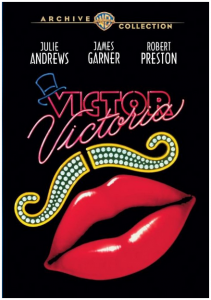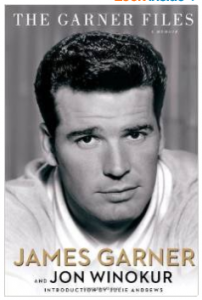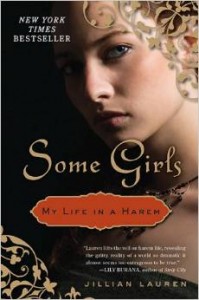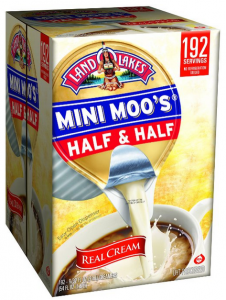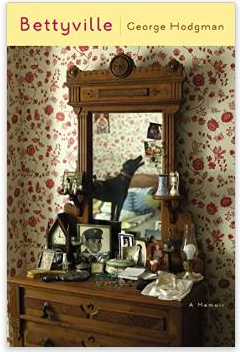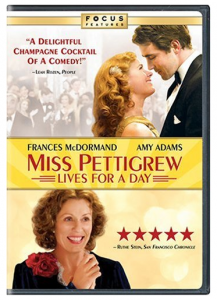I finally watched Victor/Victoria (Netflix link), which I added to my list after reading a couple of books about Julie Andrews.
There were a lot of things I liked about it. I was completely charmed to see Robert Preston from The Music Man working with Julie Andrews from The Sound of Music; I’ve watched both movies quite a few times. I liked James Garner in it, too, and it was fun to see Webster’s dad in something that wasn’t Webster.
(This reminds me to recommend The Garner Files, if you like celebrity autobiographies. I barely knew who James Garner was when I read it, and yet still enjoyed it and found it interesting. It’s been awhile, but I remember finding it funny, too. I think he looks a little like David Boreanaz. See?
I also very much enjoy the way he puts the author’s name right on the cover, instead of implying he wrote it himself. /digression)
The main trouble I had with the movie is that Julie Andrews didn’t look or seem even one tiny bit like a man to me. Not one tiny bit. She looked and sounded like a poised lady the entire time. Possibly it’s that I’m too familiar with her as an actress (and particularly as a short-haired actress, so that when she dramatically Removes! Her! Wig!, she just looks like her regular self with her hair slicked back). But mostly it’s that she just Didn’t Look Like a Guy, At All, not even like a guy who was enormously successful at pretending to be a woman. She looked like a woman in a suit, and not even like a woman pretending to be a guy in a suit: just, like a woman in a suit. So it was difficult to get into that fairly major plot point of the movie, which is that she would be fooling and amazing audiences with her act.
I also found the musical acts themselves kind of meh. Everyone in the movie is just BLOWN AWAY by her talent, but I barely remember the songs or the performances—unlike movies such as The Sound of Music, where you could watch and re-watch it just to see the songs.
Regardless! I liked the movie and was glad to have seen it, and I feel increased affection for all the actors in it.
I was very interested to read this book:
Some Girls: My Life in a Harem, by Jillian Lauren. Here is the description: “A jaw-dropping story of how a girl from the suburbs ends up in a prince’s harem.” Well! That sounds spicy!
But here is my understanding of “harem”: It’s like a collection of women, owned and cared for by the collector. They’re not paid; they may be given gifts, but it’s hard to know what ownership means if the person is owned by the gift-giver. They don’t come and go; they’re unlikely to be free to leave. They can be family, living there domestically with their children (as opposed to a more sordid image of the life there), but they’re not employees or guests.
And here is my understanding of “girl from the suburbs”: if you could equally well say “prostitute from the city,” and if in fact the latter term would be considered more accurate, then readers of the book are going to be a little disappointed.
What I was picturing before I read the book was a nice college girl traveling to another country, perhaps as part of her education, and ending up accidentally or deliberately part of a harem. Perhaps the girl would be majoring in journalism, so would turn the experience into a great story showing the inside of something we never get to see—and very likely de-sexualizing the image quite a bit. I wondered how she would manage to escape in order to publish the book.
The actual story is that woman working in New York City as a prostitute is hired to be a “party girl”: to come voluntarily and be paid to look pretty and be fun at the royal household’s nightly parties, and to have sex with the princes when they want to. She can leave if she wants to, and she does; she then returns; she then leaves freely a second time, taking her jewelry and clothing gifts with her each time. She is very well paid for this job. She’s not part of a harem, even though that’s what she calls it. We get a peek into the inner life of a hired party girl, not a peek into the inner life of a harem member.
As with many non-fiction books, this one seemed to have about two chapters of story stretched into a full-length book. The story is watered down with other talk about the author’s life. I found it very difficult to get into, in part because the story was so stretched out, in part because I was irritated that it was sold as one thing when it was actually another thing, and in part because I found the narrator so unlikeable. The way she describes other people is so mean (and done with such cunning faux innocence) it almost made me gasp—and if she was telling the truth, she failed to sell it. It’s one thing to “tell your story” and “not be ashamed,” and it’s another thing to publicly and viciously tell one side of a story, with the worst possible spin and assumptions, in a forum where the other side can’t respond. Reading it, I felt as if she’d noticed that other people got sympathy and pity when they used certain language and told their stories certain ways, and so she tried to copy/use that formula to make her own story sympathetic—but instead it reads as false/wily/manipulative/sociopathic. In the second half, her occasional brief sympathetic/self-aware remarks had become cumulatively successful (in a way that made me wonder if I were getting a better idea of her, or if I were succumbing to manipulation), so that I no longer found her unendurable—though still felt a strong urge to armchair-diagnose her, and still felt very sorry for everyone she skewered.
I don’t even recommend it as an “inner life of a party girl” story, because it wasn’t that interesting. What this book did was whet my appetite for someone ELSE to write such a book.
